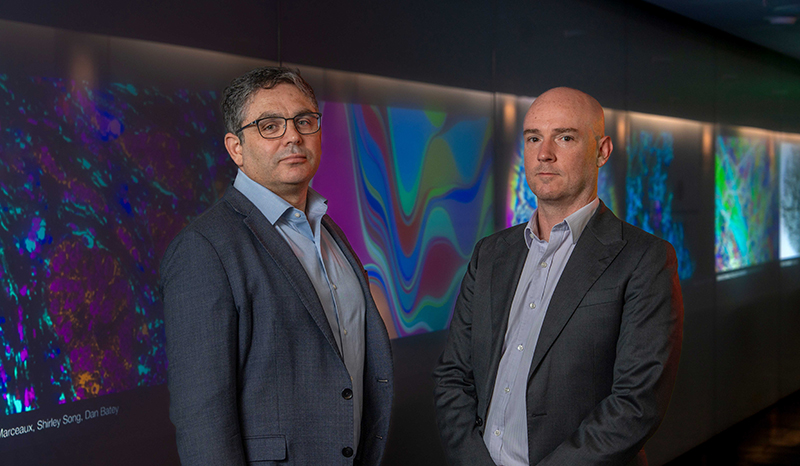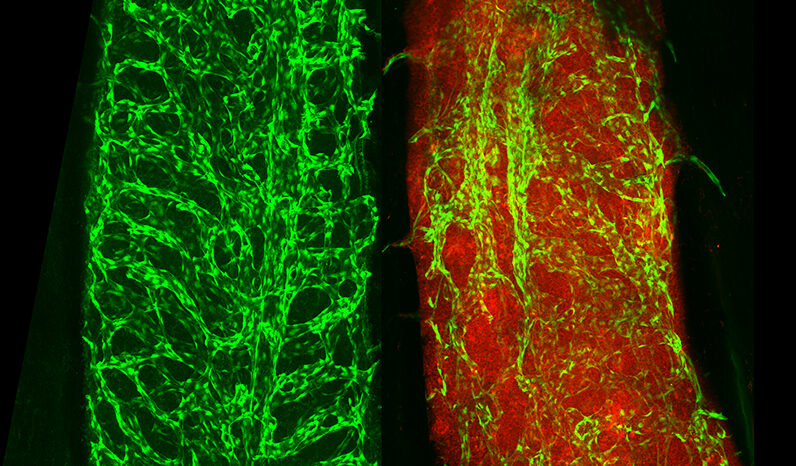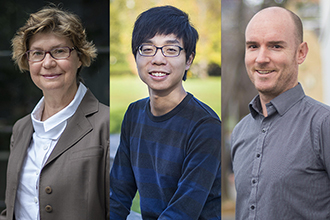Chiou S, Horne CR, Patel KM, Preaudet A, Rickard JA, Young SN, Jois A, Garnish SE, Hempel A, Hall C, Hildebrand JM, Kueh AJ, Silke J, Putoczki TL, Hawkins ED, Samson AL, Murphy JM. The kinase domain of RIPK3 tunes its scaffolding functions. Cell Death & Differentiation. 2026;:10.1038/s41418-026-01677-x
Speir M, Tye H, Gottschalk TA, Simpson DS, Djajawi TM, Deo P, Ambrose RL, Conos SA, Emery J, Abraham G, Pascoe A, Hughes SA, Weir A, Hawkins ED, Kong I, Herold MJ, Pearson JS, Lalaoui N, Naderer T, Vince JE, Lawlor KE. Author Correction: A1 is induced by pathogen ligands to limit myeloid cell death and NLRP3 inflammasome activation. EMBO Reports. 2026;27(2):10.1038/s44319-025-00609-z
Hawkins E. 1011 – MULTIPLEXING SPATIAL TRANSCRIPTOMICS, 4D IN SITU INTRAVITAL DATA AND 3D IMAGING TO DEFINE BONE MARROW MICROENVIRONMENTS IN INFLAMMATION AND BLOOD CANCER. Experimental Hematology. 2025;151:10.1016/j.exphem.2025.104891
Yip RKH, Er J, Qin L, Nguyen QH, Motyer A, Rimes JS, Light A, Mishi RD, Ling L, Anttila CJA, Tsui E, Amann-Zalcenstein D, Dowling MR, Rogers KL, Bowden R, Chen Y, Harrison SJ, Hawkins ED. Profiling the spatial architecture of multiple myeloma in human bone marrow trephine biopsy specimens with spatial transcriptomics∗†. Blood. 2025;146(15):10.1182/blood.2025028896
Atkin-Smith GK, Santavanond JP, Light A, Rimes JS, Samson AL, Er J, Liu J, Johnson DN, Le Page M, Rajasekhar P, Yip RKH, Geoghegan ND, Rogers KL, Chang C, Bryant VL, Margetts M, Keightley MC, Kilpatrick TJ, Binder MD, Tran S, Lee EF, Fairlie WD, Ozkocak DC, Wei AH, Hawkins ED, Poon IKH. Author Correction: In situ visualization of endothelial cell-derived extracellular vesicle formation in steady state and malignant conditions. Nature Communications. 2025;16(1):10.1038/s41467-025-64770-8
Yip RKH, Hawkins ED, Bowden R, Rogers KL. Towards deciphering the bone marrow microenvironment with spatial multi-omics. Seminars in Cell and Developmental Biology. 2025;167:10.1016/j.semcdb.2025.01.001
Tye H, Conos SA, Djajawi TM, Gottschalk TA, Abdoulkader N, Kong IY, Kammoun HL, Narayana VK, Kratina T, Speir M, Emery J, Simpson DS, Hall C, Vince AJ, Russo S, Crawley R, Rashidi M, Hildebrand JM, Murphy JM, Whitehead L, De Souza DP, Masters SL, Samson AL, Lalaoui N, Hawkins ED, Murphy AJ, Vince JE, Lawlor KE. Divergent roles of RIPK3 and MLKL in high-fat diet–induced obesity and MAFLD in mice. Life Science Alliance. 2025;8(1):10.26508/lsa.202302446
Chiou S, Cawthorne W, Soerianto T, Hofferek V, Patel KM, Garnish SE, Tovey Crutchfield EC, Hall C, Hildebrand JM, McConville MJ, Lawlor KE, Hawkins ED, Samson AL, Murphy JM. MLKL deficiency elevates testosterone production in male mice independently of necroptotic functions. Cell Death & Disease. 2024;15(11):10.1038/s41419-024-07242-z
Er J, Joel R, Amanda L, Dowling MR, Harrison SJ, Hawkins E. Direct Visualisation of BCMA Bispecific Antibody and the Myeloma Immune Microenvironment. Blood. 2024;144(Supplement 1):10.1182/blood-2024-198851
Atkin-Smith GK, Santavanond JP, Light A, Rimes JS, Samson AL, Er J, Liu J, Johnson DN, Le Page M, Rajasekhar P, Yip RKH, Geoghegan ND, Rogers KL, Chang C, Bryant VL, Margetts M, Keightley MC, Kilpatrick TJ, Binder MD, Tran S, Lee EF, Fairlie WD, Ozkocak DC, Wei AH, Hawkins ED, Poon IKH. In situ visualization of endothelial cell-derived extracellular vesicle formation in steady state and malignant conditions. Nature Communications. 2024;15(1):10.1038/s41467-024-52867-5






